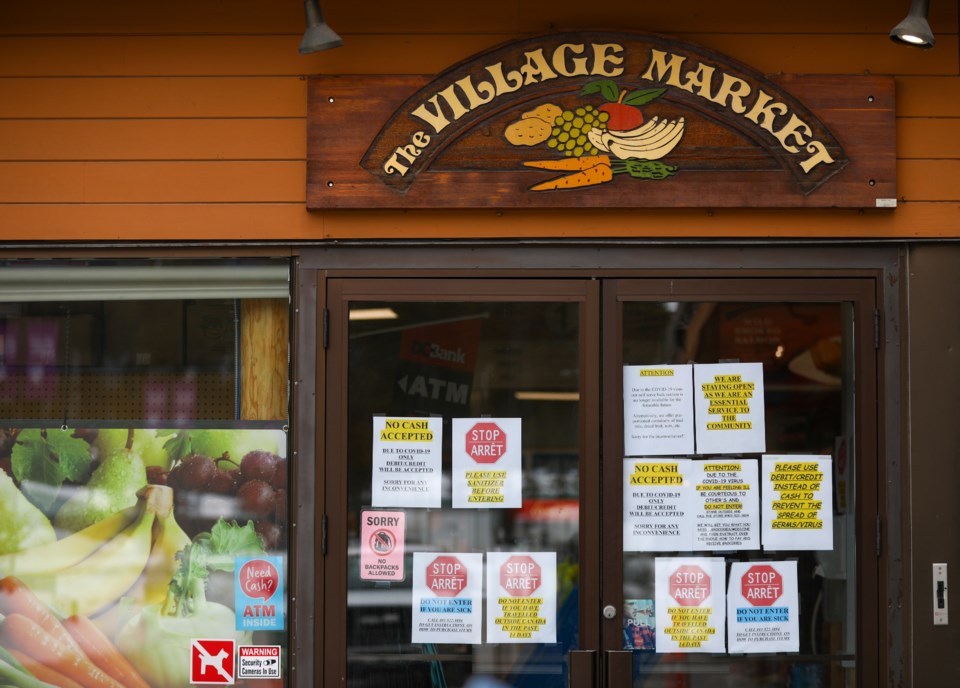LAKE LOUISE – A new charter released by the Bow Valley Food Alliance had its first signatory after Improvement District No. 9 adopted the document in council last month.
In the works since 2018, the Bow Valley Food Alliance’s mission is to create an overarching policy guideline for elected officials across the Bow Valley, including Lake Louise, Banff, Canmore and the MD of Bighorn, while also working with the Stoney Nakoda First Nation. The document outlines key values for food sovereignty.
“It’s exciting and inspiring," said alliance team member Lauren Kepkiewicz. "Personally, I feel lucky to have worked with people who have done really cool things in the valley.
“The thing about the Bow Valley Food Alliance and the charter is, we have worked really hard to have a conversation across different municipalities in the valley. So it has been really inspiring to see people work together and it has been inspiring to learn about the things happening in the valley – it’s nice to see that people care.”
Improvement District No. 9, which represents Banff National Park outside of the Banff townsite, signed the Bow Valley Food Charter on April 9 at its regular council meeting. The charter outlines key values, including social justice, vibrant regional economics, the earth and environment, knowledge and education, collaboration and diversity, accessibility, health and local food systems.
The charter's vision is to create equitable and ecologically regenerative community-based food systems.
Bow Valley Food Alliance member and ID No. 9 councillor Jean-Marc Stelter said he supported the document and is hopeful to see other municipalities also adopt it.
“Food security has always been a passion of mine [and] I loved the holistic approach the Bow Valley Food Alliance has taken to food security in the valley,” he said.
“We were enthusiastic to sign the charter, I think it’s been a great move for the valley. The problems and advantages we face whether it be Exhsaw, Morley, Canmore, Banff or Lake Louise – it’s good we are all on a good collective path to move forward.”
While Kepkiewicz said the alliance has yet to approach other municipal councils with the charter, she did note the alliance has been working on relevant supporting documents, such as the Imagine Food in Banff report that was released last fall.
The report highlighted strengths and issues in the mountain town with affordability at the top of the list and access to and support for food programs, spaces to grow, prepare and gather, and community decision-making and ability to shape food systems, also noted.
The Imagining Food for Banff report acknowledged strengths, which included community lunches and dinners, Banff Food Rescue, the Banff Farmers Market, food boxes, community growing spaces – and made 10 recommendations.
Kepkiewicz said the alliance was working on similar reports for Canmore and Bighorn when the pandemic hit the province – postponing some community meetings which were designed to get feedback.
“The report was seen as the more informational side, whereas the food charter is how we move forward,” Kepkiewicz said.
“[The charter] is a stepping stone of what we do next and how we’ll see different municipalities respond.”
The newly released charter focuses on self-sufficiency, local entrepreneurship, and alternative food initiatives that champion sharing, cooperation and collaboration. Within that it also wants to see knowledge and education based in intergenerational and cultural learning, including community conversation, training and school curriculum that build gardening, harvesting and cooking skills, as well as understandings regarding the impacts of the food system.
Accessibility was highlighted as a key value as well to provide access to fresh, affordable food including culturally appropriate spaces to gather, grow, harvest and prepare food in a welcoming and dignified way, while also basing another key value
in reconciliation and empowering marginalized communities, including fair wages and working conditions, adequate and appropriate food secure housing and community food-based programs.
“We see the food charter as one point in a longer process that will help with conversation and also give some language to what people have been talking about in the Bow Valley and bring some attention to the strengths and issues,” Kepkiewicz said.
While the supporting documents have been put on pause, the alliance said it is still busy focusing on the immediate food security needs amid the pandemic but will continue the conversations once it is appropriate to do so.
“The charter is trying to establish conversations around food. The next step is to think about what that will look like,” Kepkiewicz said.”
“We recognize that will be different across the valley but we do offer some suggestions.”




